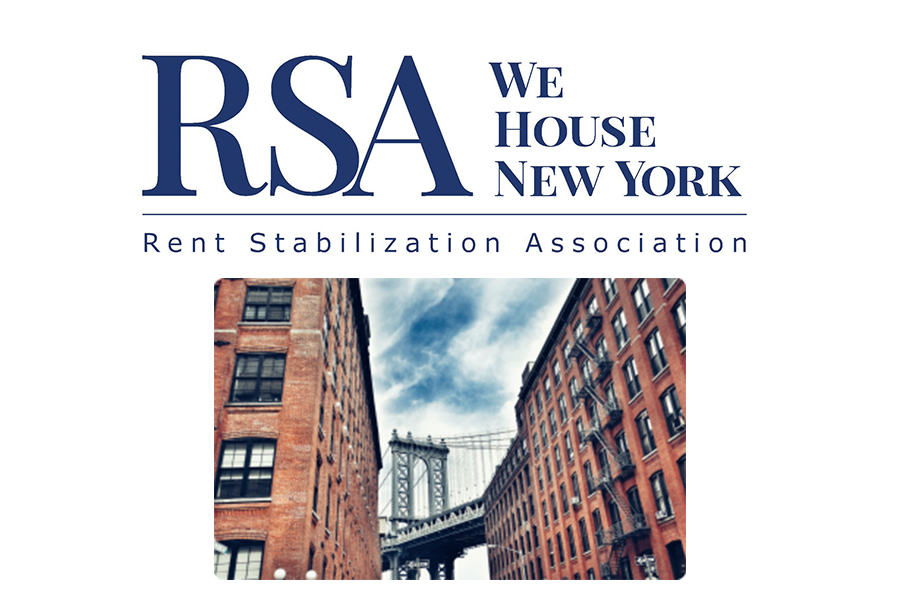
RSA speaks out on ‘eviction tsunami’

The Rent Stabilization Association (RSA) is New York’s largest trade association representing the policy interests and priorities of thousands of apartment building owners and managers of all sizes. Because the issues facing apartment buildings also impact other multifamily buildings, RSA members also include co-ops and condos. The overwhelming majority of their membership is rent-stabilized buildings, which provide most of the affordable housing options in the NYC metropolitan area. RSA provides compliance services, lobbies in Albany and at City Hall and has research, legal and communications professionals as well.
Since the end of the worst of the COVID pandemic and the sunsetting of rent support government programs, there has been a steady drumbeat of alarms from tenant activists and some public officials about an “eviction tsunami.” In response to these claims, which have been informing some housing policy discussions, the real estate newsletter BROOKLYN SPACE (sponsored by the Brooklyn Eagle) heard from RSA about a research project their General Counsel undertook to look at Housing Court data from throughout New York City. We spoke with RSA’s Communications Director about the numbers and their policy suggestions for addressing Housing Court backlogs.
BKLYN SPACE: There’s a lot to unpack here, but what’s the topline executive summary explanation of what RSA’s General Counsel found in looking at Housing Court data?
Leave a Comment
Related Articles


Bay Ridge leads Brooklyn in showing how a NORC should work best

Premium Content
Here’s why Bay Ridge, a ‘Naturally Occurring Retirement Community’ (NORC), takes good care of older adults

Remembering Haley Daquara
Liberty Kiwanis, Greenhouse Café
hold fundraiser to celebrate a life
Leave a Comment
The Brooklyn Daily Eagle and brooklyneagle.com cover Brooklyn 24/7 online and five days a week in print with the motto, “All Brooklyn All the Time.” With a history dating back to 1841, the Eagle is New York City’s only daily devoted exclusively to Brooklyn.
© 2024 Everything Brooklyn Media
https://brooklyneagle.com/articles/2023/12/22/rsa-speaks-out-on-eviction-tsunami/
